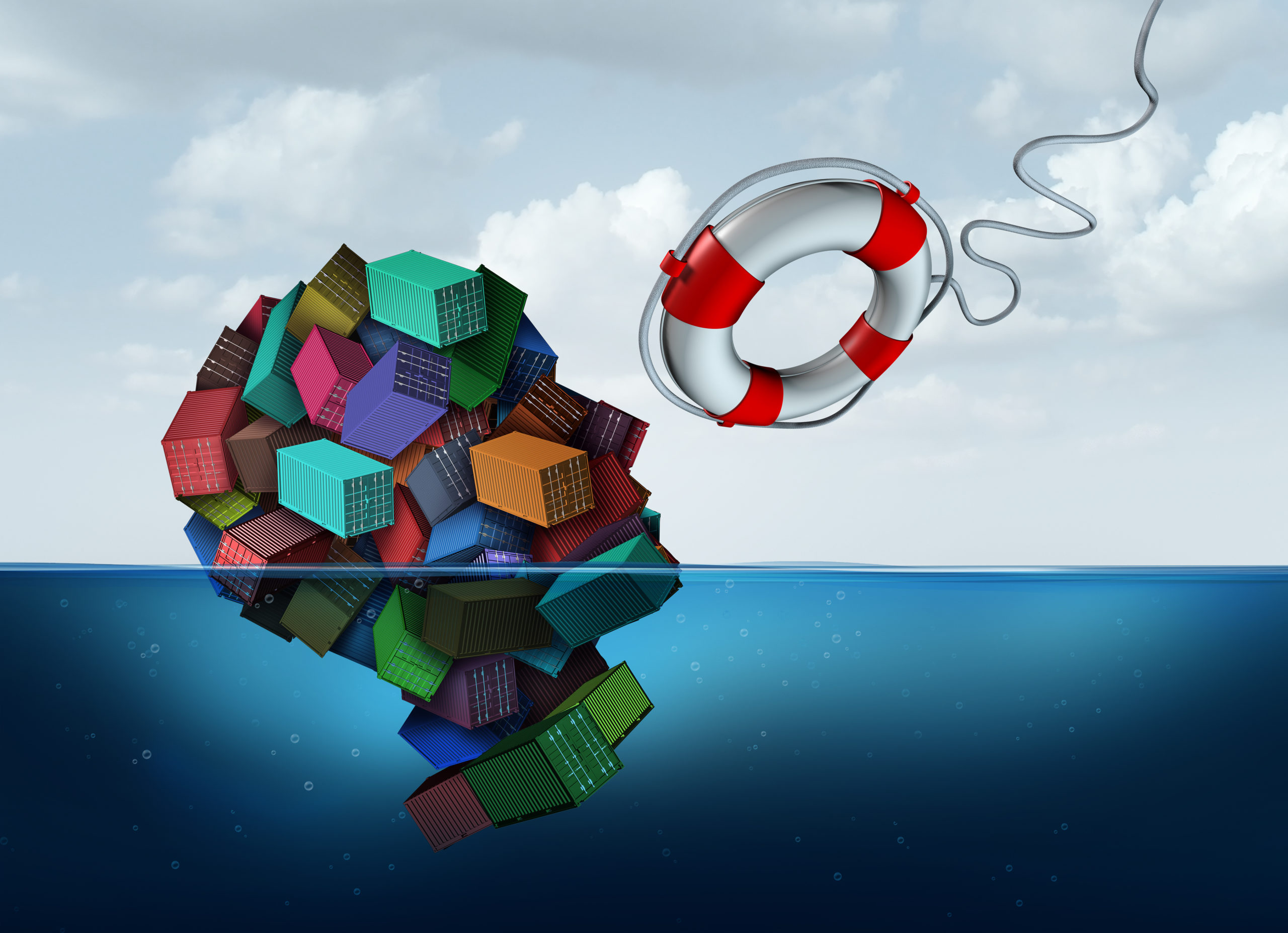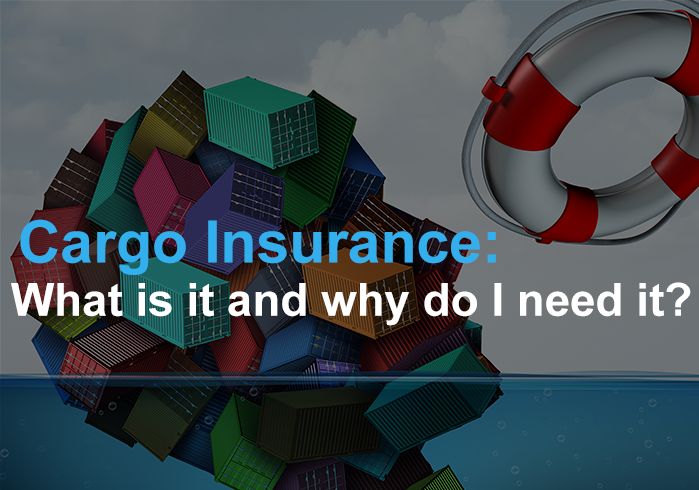
The shipping industry needs to consider the management of cargo insurance costs. This requires a thorough understanding of how freight insurance operates. Specifically, businesses should be careful about which insurance packages they select to ensure that they have sufficient coverage in case the risks of shipping materialize. Otherwise, full liability may arise in cases of accidents and losses. As a starting point, it is important to properly understand cargo insurance.
Conceptualization of cargo insurance
The basic definition of cargo insurance is, a pool of risks to cover individual liabilities when an incident occurs during the management of cargo that subsequently leads to losses. For a relatively small monthly contribution, the members of the insurance plan can reduce the potentially larger bill of liabilities. In some instances, cargo insurance is mandatory, but the level of coverage can vary significantly. For example, most carriers typically provide basic insurance but it is limited and virtually useless in the most serious incidents.
For most businesses, the minimal carrier liability insurance coverage is just not enough. Anything from vehicle accidents to natural disasters can easily push the claims beyond the minimum coverage. Similarly, an act of war might disrupt the journey and lead to the loss of the cargo, meaning that the uninsured must bear the costs from their own budgets. It is advisable for all shippers to upgrade their coverage accordingly.
The risks that are covered include theft, damage, and loss during transit. The best coverage ensures that cargo is covered even during storage until it is handed over to the final customer in the chain. Despite its benefits, there are limitations to cargo insurance.
Calculate your rates today!! Click here for more info
Limitations of cargo insurance
In the U.S. there is the Carmack Amendment which indicates that trucks that pass across state lines are not fully covered against all losses and could be held liable for any damage to goods. Proof of negligence is not required. This is why it is important to have reliable coverage. However, the lack of a single comprehensive package means that carriers must shop around and make decisions about the relative cost and coverage of each proposed policy.
Insurance is only valuable if there is a realistic prospect of risks being covered when a claim is made. Some policies have complex exclusion clauses that practically imply a lack of coverage. Even having a certificate of insurance may not always lead to a successful claim since the provider may raise questions that ultimately cancel the claim.
Many exclusions may be written in the law to protect the shipper, carrier, and even end customer. For instance, the package may only cover certain equipment in very specific circumstances. Other packages are limited to certain terminals. The events covered could also be restricted from the outset. There are policies that will only be triggered if the service is performed in a certain way to certain standards.
Understanding and documenting the value of your cargo is the first step in ensuring that you get the best out of the cargo insurance package. Having proper documentation is very important when assessing losses and damages. Otherwise, lengthy disputes might prevent the claim from being cleared. It is advisable to hire a competent insurance agent or lawyer to read the small print in your policy. One of your key tasks will be understanding the policy under which you are covered.
Types of cargo insurance
Various types of cargo insurance have emerged on the market over time. Some policies are domestic while others are regional and international. Where jurisdictions have been crossed, it is crucial to have adequate representation in case there is a dispute. The different categories are listed below. One of the categories relates to the geographical scope of the policy, such as national versus international.
Land cargo insurance
These policies are for land transportation including small utility vehicles and trucks. Risks that are included may include collision, theft, and related risks. The policies are typically bound within national borders.
Marine Cargo Insurance
This coverage includes transportation by air and sea. Some of the critical coverage points include damage that occurs during loading and unloading as well as weather contingencies. The policy may also deal with piracy, a major problem on certain routes. In its presentation, marine cargo insurance is decidedly international. It can include several subcategories that are explored below.
- Open Cover Cargo Policies
These policies deal with various consignments, being renewable or permanent. The renewal version is for a specific value and will need to be renewed after it expires. The product is used for single voyages/trips. If there are many shipments in a specific period, the temporary status might be turned permanent.
- Specific Cargo Policies
These policies arise when a company approaches a broker or insurer to cover a specific consignment. They are included in voyage policies because they only deal with shipments and not freight.
- Contingency Insurance Policy
These policies are constructed in situations where the customer is responsible for damage or losses. The challenge is that the goods might be damaged during transit and the customer declines to take them. There are situations where the customer does not get the appropriate insurance and avoids liability. Legal recourse may be required to compel the customer to pay for damages. Contingency policies cover them in case they lose and may also cover legal costs.
Benefits of cargo insurance
Cargo insurance is highly recommended because of the benefits it brings to the industry, companies, and individuals. The right policies can cover goods in transit regardless of the modality including courier, post, rail, road, air, and water. There are various levels of coverage as detailed below.
All Risk Coverage
The all-risk cargo insurance is as extensive as it is comprehensive. It covers most losses or damages that are caused by external factors. Despite its name, certain events or instances may be excluded. Generally, the policy will address damages arising out of infestations, inappropriate packing, abandonment, employee dishonesty, and customs rejection.
Free From Particular Average Coverage
This policy excludes partial losses to the hullo or cargo due to sinking, stranding, collision, or burning. In addition, shippers are not required to cover minor losses under this policy as calculated by a predetermined percentage. The shipper’s liability will only kick in when the damages are significant. Specific perils may be included such as inclement weather, collision, derailment, earthquakes, sinking, theft, and non-delivery.
General Average Coverage
This policy is a minimum requirement for marine cargo. However, it only covers partial losses. The rest of the costs are passed on to the agent, shipper, or consignee.
Warehouse to Warehouse Coverage
This policy is required to cover the period of unloading from a ship to delivery at a customer’s warehouse. It is important to note that insurers typically compensate only the policy owner’s cargo.
Wrapping up
Cargo insurance pools the risks of shipping so that policy holders must pay a relatively small premium to access the potential benefits. Given the volume and value of shipments, cargo insurance is of the essence. Given the diversity of products on the market, it is important to assess the extent and appropriateness of the coverage that is being proposed before purchasing a plan.



One Comment on ““Cargo Insurance: What is it and why do I need it?””
thank